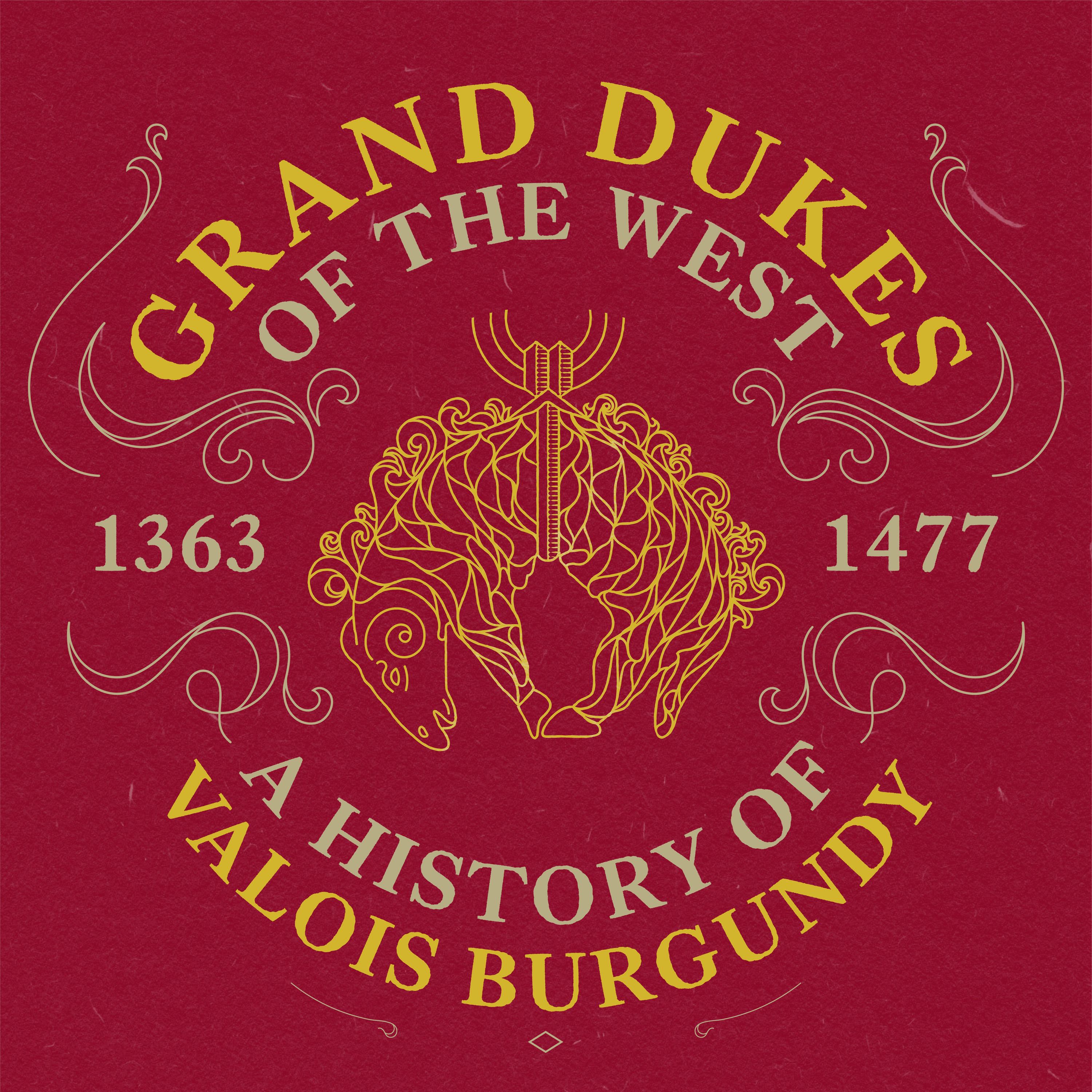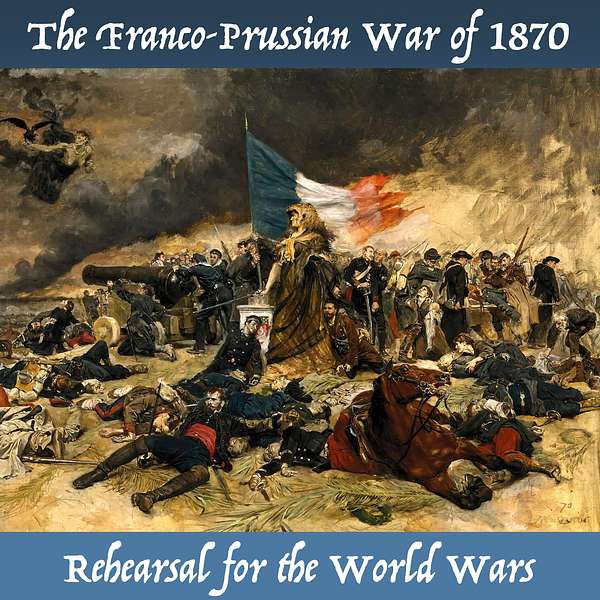
La Fayette, We Are Here!
La Fayette, We Are Here!
The Franco-Prussian War of 1870, rehearsal for the World Wars
Use Left/Right to seek, Home/End to jump to start or end. Hold shift to jump forward or backward.
The Franco-Prussian war of 1870 is an important but often neglected conflict. Most people don't even know about it. In America, even history fans go straight from the Civil War to World War I, not really taking into account this major conflict that happened in between.
Let's fix this, shall we? We'll discuss the origins of the conflict, its course and its huge consequences. In the last section, we'll discuss some alternative history. What if France had won that war? I think you'll be surprised as to what that entails.
Time codes:
Introduction
03:03 - Why this subject?
06:46 - The Northern German Confederation
11:26 - Origins of the Conflict
14:15 - The War
20:39 - Consequences
23:22 - What if? & Conclusion
Artwork for this episode: Ernest Meissonier, Le Siège de Paris, musée d'Orsay.
Reach out, support the show and give me feedback!
Welcome back to “La Fayette, we are here!”, A French history podcast for the American public. I’m your host, Emmanuel Dubois and today we are talking about an important but often neglected conflict, the Franco-Prussian War of 1870.
Before getting into our subject, I want to thank the listeners for their kind feedback. I got constructive comments on the show as well as suggestions for future episodes. By all means, keep sending me those. And now, back to our topic for today.
Intro
There is a fundamental concept in geopolitics. Balance of power. Imagine a small boat with two men in it, it is balanced. If you add an elephant to one side or the other, it capsizes.
For centuries, France had been the dominant power in Western Europe, but not an all-powerful one. As mighty as its army was, it often had to deal with coalitions of countries that matched or surpassed its capabilities. And on the seas, it’s been restricted by British power since the XVIth century. There was a certain balance on continental Europe. France was very powerful, but not hegemonic. Something a country like Great Britain made sure with various alliances over the years. The last time a country was too strong, it was indeed France, during the Napoleonic Wars. It took efforts from all the rest of Europe to bring it down. Europe post-1815, the year Napoléon is defeated and the Vienna Treaty is signed, is designed to prevent another Nation from becoming that powerful. France loses a lot of conquered territory and other kingdoms are reinforced. It was a triumph for conservatives and tenants of the Ancien Régime.
But this all changes in the second half of the XIXth century. France’s population doesn’t grow as fast as its neighbours', because of various policies adopted in that period, and there is a big change on Europe’s map. The German speaking states are unifying, under Prussia’s implacable impulse. Germany, a country that is now Europe’s dominant economical power didn’t exist then. When it’s born, France loses its status as Europe’s main land military power. And it does so, rapidly and dramatically. After that, Europe, the boat, will capsize a couple time in the next 75 years.
Why this subject?
I chose to talk about the Franco-Prussian War of 1870 because it is relatively unknown in the USA, stuck between the Civil War and the First World War. The American Civil War is a hugely important conflict especially because of its moral implications. It will define what the US will be as a nation until today and many of its issues are still very present in America. However, from a military standpoint, this war is closer to the Napoleonic wars than to the First World War. The Franco Prussian war of 1870 is the opposite.
This conflict will have huge military and political consequences, but it isn’t a conflict of ideals or values, it’s a good old power struggle, albeit in a new context. France, the millennia old Nation State versus the new kid on the block, the Northern German Confederation, created in 1867, and its German allies: Bavaria, Bade, Wurtemberg and Hesse. It is also the first real industrialized conflict in Europe, and it will be extremely bloody.
The American Civil War was a war of attrition. A long, exhausting conflict that lasted four years from 1861 to 1865. But it is still fought mainly with muzzle loading rifles, muzzle loading canons with canon balls and not shells and with Napoleonic tactics. The Franco-Prussian war is fought with breech loading rifles, heavy artillery, mitrailleuses (French for machine guns) and other terrible weapons. The famous Prussian general Helmuth von Moltke, who will be the main commander of the German forces during the war against France, was an observer in the US during the civil war and described it as “two armed-mobs running around the countryside and beating each other up, from which very little of military utility could be learned”. Even without agreeing with his choice of words, I have to say that indeed the European armies of the time were more advanced and modern than America’s. But that’s not necessarily a good thing.
Let’s compare the numbers, to put things even more in perspective. The American Civil War costs 600000 dead in 48 months. This is by far the most American losses in any conflict. The US will suffer 116000 dead in WWI and over. 400000 in WWII, so the Civil War is costlier than the two world wars combined for America.
The Franco-Prussian War costs over 190000 dead, 150000 of them being French. But that’s over six months, not 4 years. That’s 12500 dead soldiers a month in the Civil War versus 31600 in the conflict we are describing today, literally twice as much. These numbers should help you understand how brutal and terrible this war was. It was twice as deadly and destructive as the worst war America ever went through. That’s saying something.
The Northern German Confederation
Before going into the conflict itself, let’s talk about this Northern German Confederation. One must understand that Germany, as a concept, did not exist back then. Contrary to the French, the German people lived in many states, not in one unified country. If you go to Germany today, this is still very visible. It’s a decentralized country and the different Länder, or States, have some autonomy within Germany. Germans still have a very strong attachment to their Länder, culturally and politically.
The biggest and strongest German State of the mid XIX century is Prussia. It’s a big territory, that would be over modern eastern Germany and Poland basically. It’s also a relatively recent country, established as a kingdom only in the XVIIIth century. But from the get-go, it has a very strong emphasis on the military. The French writer Mirabeau said of Prussia that it isn’t a nation with an army, but a nation conquered by an army. The best social position you could achieve in Prussia was in the military. And in the 1860’s, Prussia fought successful wars against Denmark and Austria to incorporate other German speaking states, forming the Northern German confederation in 1867 (the same year that the Canadian confederation is created by the way). It’s basically a federal system, with Prussia on top, but incorporating Hanover, Schleswig-Holstein, Nassau, Hesse and Frankfurt. This enterprise of creating a united German territory is pushed forward by one of the most brilliant politicians of all time: Otto von Bismarck. He’s the Prussian foreign minister and becomes the first German chancellor.
In 1862, Bismarck made a speech in Prussia regarding foreign policy and military budget. During that speech he said:
“The position of Prussia in Germany will not be determined by its liberalism but by its power [...] Prussia must concentrate its strength and hold it for the favourable moment, which has already come and gone several times. Since the treaties of Vienna, our frontiers have been ill-designed for a healthy body politic. Not through speeches and majority decisions will the great questions of the day be decided—that was the great mistake of 1848 and 1849—but by iron and blood”
That "iron and blood" quote is particularly famous and portrays him as brutal and reckless, but it is only one aspect of his personality and desire for a united Germany. He is in fact, a remarkable diplomat, and not a reckless, savage or bloodthirsty leader.
Otto von Bismarck is a visionary as well as a political genius. He technically works for the Prussian king, Wilhelm, but in reality they work together and Bismarck is the one planning and building the political alliances needed to create a unified German State. The funny thing is that Wilhelm doesn't care about a unified Germany. He just wants to be King of Prussia, but he goes along. There is a lot of drama between Bismarck and Wilhelm, with Bismarck often threatening to quit or even to commit suicide! But, just like an old couple, they talk it out and keep going.
France is obviously troubled by these german unification wars. Although it doesn’t find itself directly involved in these conflicts, Prussia is definitely changing the balance of power in Europe in its favour and France doesn’t like this, not one bit. Ironically enough, the last straw, from the French viewpoint, won’t come from Germany but from Spain.
Origins of the conflict
Spain was a monarchy, one with a reigning Bourbon family. Remember them? They are the branch of the Capetian dynasty that reigned in France until the Revolution. Spain has had a Bourbon monarch since Louis XIV's grandson became king of Spain. But at the end of the XIX century, Spain is going through a very, very rough patch, and has been for decades. It faces various crisis, until the Bourbon monarchy collapses in 1869. That's where things get interesting for us. Isabel II, queen of Spain, takes refuge in France, and there is a name circulating for a successor. Leopold von Hohenzollern. This German prince is from the King of Prussia's family, and Bismarck is pushing for him to become the new king of Spain. As soon as that happens, France starts threatening war.
France doesn't want to relive the times in the XVI and XVIII's century when the Habsburg family ruled over Spain and the Holy Roman Empire (basically modern Germany), being caught between the two. So it puts all its diplomatic weight to prevent this from happening. Bismarck being the shrewd politician that he is, pushes even more for the prince's candidacy. He doesn't care much as to what happens to Spain, but he sees that as a way to solidify the new German unity. If France is against the desires of the Prussian ruling family, it's a problem for Prussia. But if France is willing to go to war against the new confederation and its German allies, it's another matter entirely. Bismarck would be defending the German people, he'd be the good guy. The French, misguided and underestimating German military might, keep on pressing.
The French Foreign Minister, Gramont, is particularly pro-war and does everything Bismarck wants him to do. The German Chancellor calling the French minister "the stupidest man in Europe". Leopold von Hohenzollern finally decides to decline the offer to be king of Spain for various reasons. But France wanted more, it wanted the king of Prussia's insurance that this situation would never happen again. Bismarck made sure they didn't get those insurances. On July 19, 1870, France declares war on Prussia.
The war
The French Minister of war, General Lebœuf, was certain that the French army was more than ready for this war, stating that "So ready are we, that if the war lasts two years, not a gaiter button would be found wanting". He was completely wrong.
France was facing the Northern German Confederation, but also its German allies, Bavaria, Bade, Wurttemberg and Hesse. The Germans were able to mobilize much faster than the French, sending at least twice the number of soldiers the French were able to muster.
The French are led by Marshal Mac Mahon, who suffers a defeat at the battle of Weissenburg, close to Strasbourg, on August 4th. The Germans then keep inflicting defeat after defeat to their French enemy. The French have no choice but to retreat and try to regroup. The French army was disorganized, pretentious and misled, a far cry from Napoléon's Grande Armée or even the French army that gain victories in the 1850's. The Germans are led by Helmuth von Moltke, he's far more cunning and modern than his French counterparts.
The French had tried to hold the fortress of Metz, in Lorraine, but on August 19, the French Marshal Bazaine has to retreat. That's when Napoléon III took personal command of the French army, called the Armée de la Meuse, along with Marshal Mac Mahon. He clearly hoped that his presence at the front would help the French cause. It should be noted that Napoléon III at this time is old and sick, with major bowel and cardiac issues. How much did that play a role in the outcome of the war? Probably not much in the grand scheme of things, but it's worth mentioning.
The War is about to have its biggest and most decisive battle, at Sedan, in the Ardennes. The French army is composed of about 130000 men and 564 guns, the Germans have over 200000 men and 774 guns. On September 1st, the French launch an assault and suffer heavy losses, over 38000 casualties, 21000 of them being prisoners. The soldiers flee the battlefield. The German guns fire in a semi-circle formation on the French troops, unopposed. It's a massacre.
The main reason for this debacle is French lack of quality in command. Marshal Mac Mahon, who had already committed various tactical errors, is wounded early in the battle. He's replaced by general Ducrot. He decides to go against the Marshal orders, issuing his own, creating confusion in the French ranks. A bit later, General de Wimpffen claims that command should be his, as he possesses a letter from the minister stating that, should the marshal be incapacitated, he would be the one in charge. He also issues new orders. Confusion turns into chaos on the French sides. The French soldiers will pay the price of this incompetence with their lives.
In the end, over 100000 French soldiers are made prisoners by the Germans. They also capture thousand of horses, rifles and other military equipment. The Emperor Napoléon III tried his hand at diplomacy, going to discuss terms with Bismarck and the Kaiser Wilhelm, both of whom are at the battle. Remember, this is still the Nineteen century, Statesmen can still go on the next hill to observe a battle. In the end, Napoléon has to surrender. He's made prisoner by the Germans. His regime, the Second Empire, falls. The Third Republic is proclaimed, in Paris. Its ignominy for France, triumph and victory for soon-to-be Germany.
The French manage to muster over half a million men to keep on fighting. They even manage a victory, in November, at Coulmiers. The Germans are better led, have bigger field guns and the momentum. The French do have some technological advantages. They have more machine guns, and those are dreaded by the German soldiers. Their rifle, the Chassepot, is more accurate and powerful than the German Dreyse. It's the first really industrial war, and men are exposed to heavy artillery for the first time. Instead of having iron balls falling on them, they face explosive shells. If walking in ranks, instead of a dead man or two or some broken limbs, you end up with ground meat. It's horrifying, and a glimpse of what will happen in 1914.
The fighting goes on everywhere, Paris is even besieged, until the French Government of National Defence signs an armistice on January 28 1871. This seventh months war was actually decided in two, with the remainder of the war being more misery for the French. All the fighting happened on French soil. When all is said and done, the French had suffered over 150000 dead, as many wounded, and over 720000 prisoners. The Germans had lost 28000 men.
France suffered also a civil war just after the war with Prussia. This event, known as the Paris Commune, cost between 15000 and 20000 dead and had a deep impact on France. I'll do an episode on it and the III Republic properly at some point. For now, I'll focus more on the geopolitical changes in Europe because of the outcome of the war.
The Treaty of Frankfurt was signed in may 1871, and it stated that France had to cede Alsace and Lorraine to Germany and to pay billions in war indemnity. A German occupying force stayed in France until it was paid, which took about three years.
Consequences
The most important consequence in my opinion is what happened to the various German states. This war had been a huge unifier, Bismarck had achieved his goal. On January 18 1871, even before the armistice, the Second German Empire (or Reich in German) is proclaimed in Versailles, just to rub it in. It's called the second empire because the Holy Roman Empire is considered the first. It incorporates the German states that fought with Prussia against France and effectively becomes the strongest State in Europe.
The European order had been completely turned over. France's army was considered the finest in Europe, and it got, not only defeated, but crushed by the Germans. This shift in military supremacy was sudden and with enormous consequences. From now on, French, British, Russian and other diplomacies will have to take into account Germany's desires and sensibilities a lot more often.
Germany had become the elephant in the European boat. If it decides to move a bit too fast to one side or the other, the whole thing would capsize. As we all know, Germany did move a bit too fast during the XX century, and Europe not only capsized but burned. Of course, it's a lot more complicated than that and Germany is not the only nation responsible for the World Wars, far from it in fact, but it is incontestable that it had become the dominant power in Europe because of its success against France in 1870-71.
France itself became a Republic and this won't change. France was done with monarchies and empires. It will recover from this crushing defeat, albeit never totally. Of this war and the defeat of Sedan in particular, one of the founders and future French Prime minister of the III Republic said "N'en parlez jamais; pensez-y toujours" which translates in "Never speak of it, always think of it".
What if?
Now, I'd like to conclude this episode with a "what if" segment. We normally do not write history with "ifs" but I think it's worth the exercise here. Most people are barely aware of the Franco-Prussian war, or not at all! But imagine for a second that France had won that contest. Imagine the French finding a weakness in the German tactic and defeating their army. Imagine French troops walking in Germany, German towns being sacked, German civilians suffering. The cement of German unification was still very, very fresh. It wouldn’t have taken well French boots marching all over it.
The Northern German Confederation might very wall have collapsed in such a scenario. Bismarck would have been sacked and King Wilhelm might have been deposed. Instead of a strong German unification, we could have reverted to multiple, weaker, German states. What would be the consequences of that for the XXth century?!
Would we still have had a WWI? Maybe, but it surely would have been completely different. Maybe shorter, maybe the USA don't need to get involved with it, therefore completely changing America's role on the international scene from what we know happened.
Russia might not have had its Bolshevik revolution, which was greatly helped by the war and its repeated defeats against Germany. I have no doubt that the Tsar gouvernement would have fallen or would have changed dramatically, but maybe not into the Soviet Union. Maybe a liberal, Western-Friendly Russia would have emerged, who knows?
What is sure, is that this war, this little talked about war, was a pivotal moment in Europe's history, and probably in world's history. As I stated in my introduction episode, France's history often has consequences that go way beyond its borders. The Franco-Prussian war is a perfect example of that.
I hope you enjoy this episode. Fell free to send me questions or feedback about it. Thanks for listening, au revoir.
Podcasts we love
Check out these other fine podcasts recommended by us, not an algorithm.
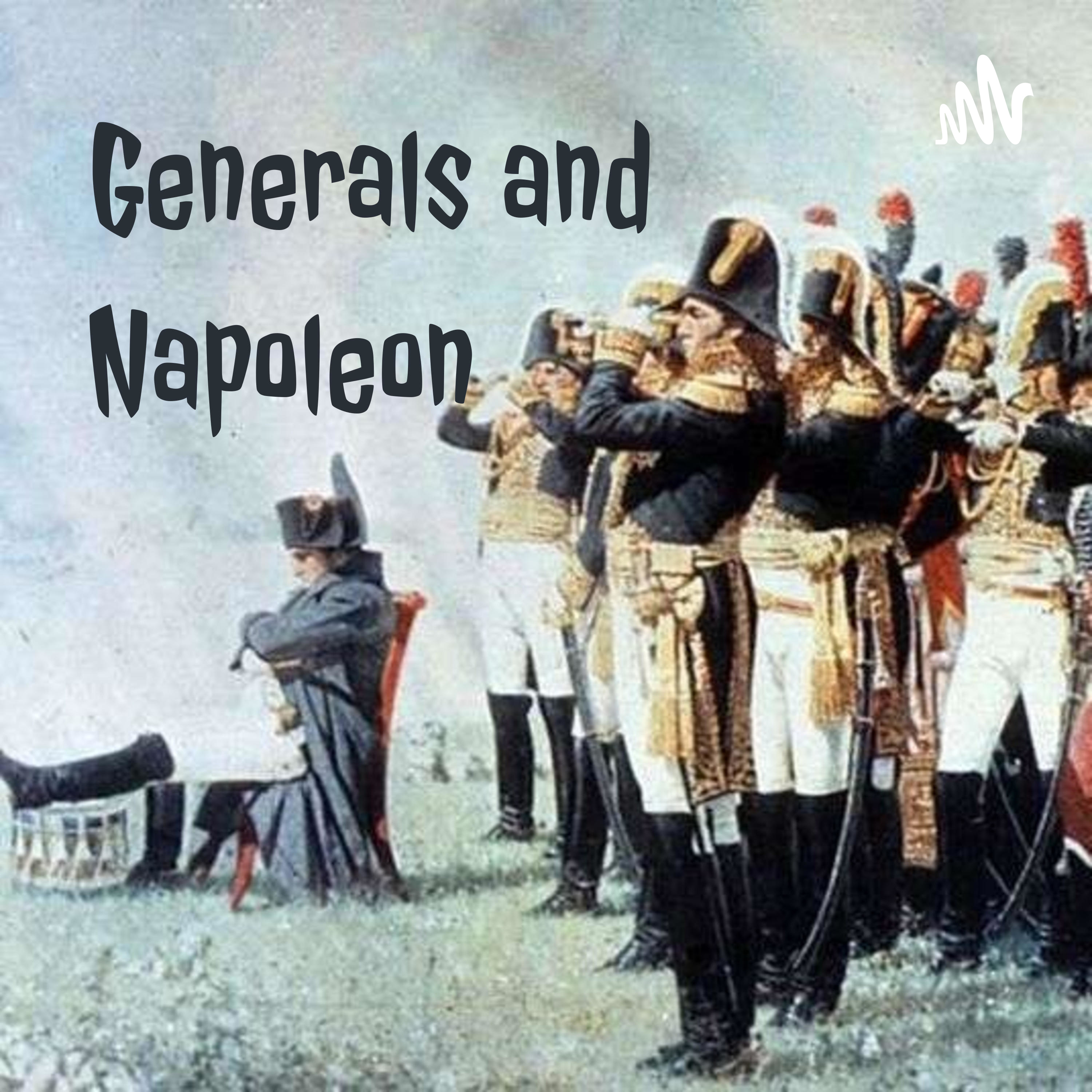
Generals and Napoleon
John W. Viscardo
Shipwrecks and Sea Dogs
Rich Napolitano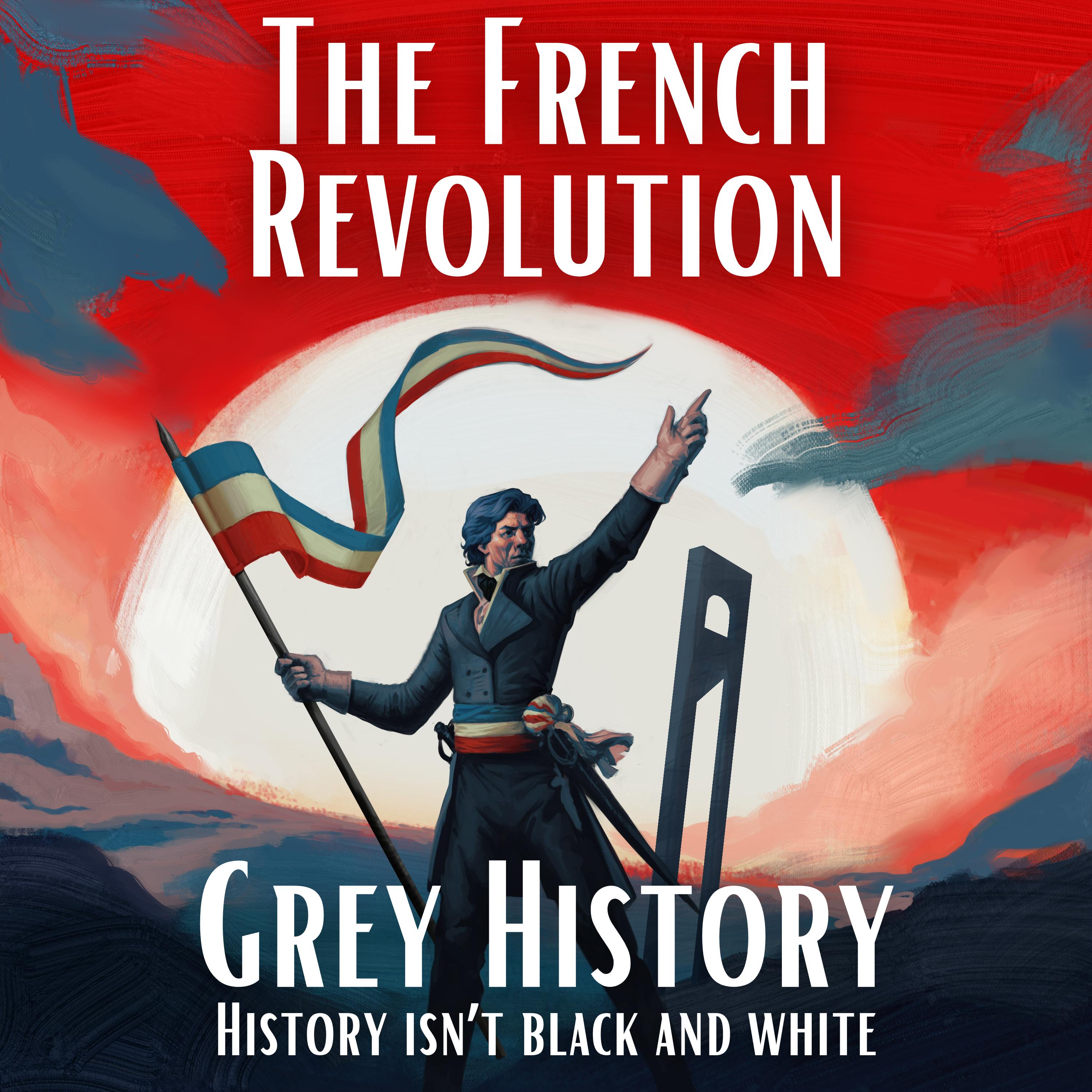
French Revolution & Napoleon (Grey History)
Grey History (William Clark)
The Life and Times of Frederick the Great
Alec Avdakov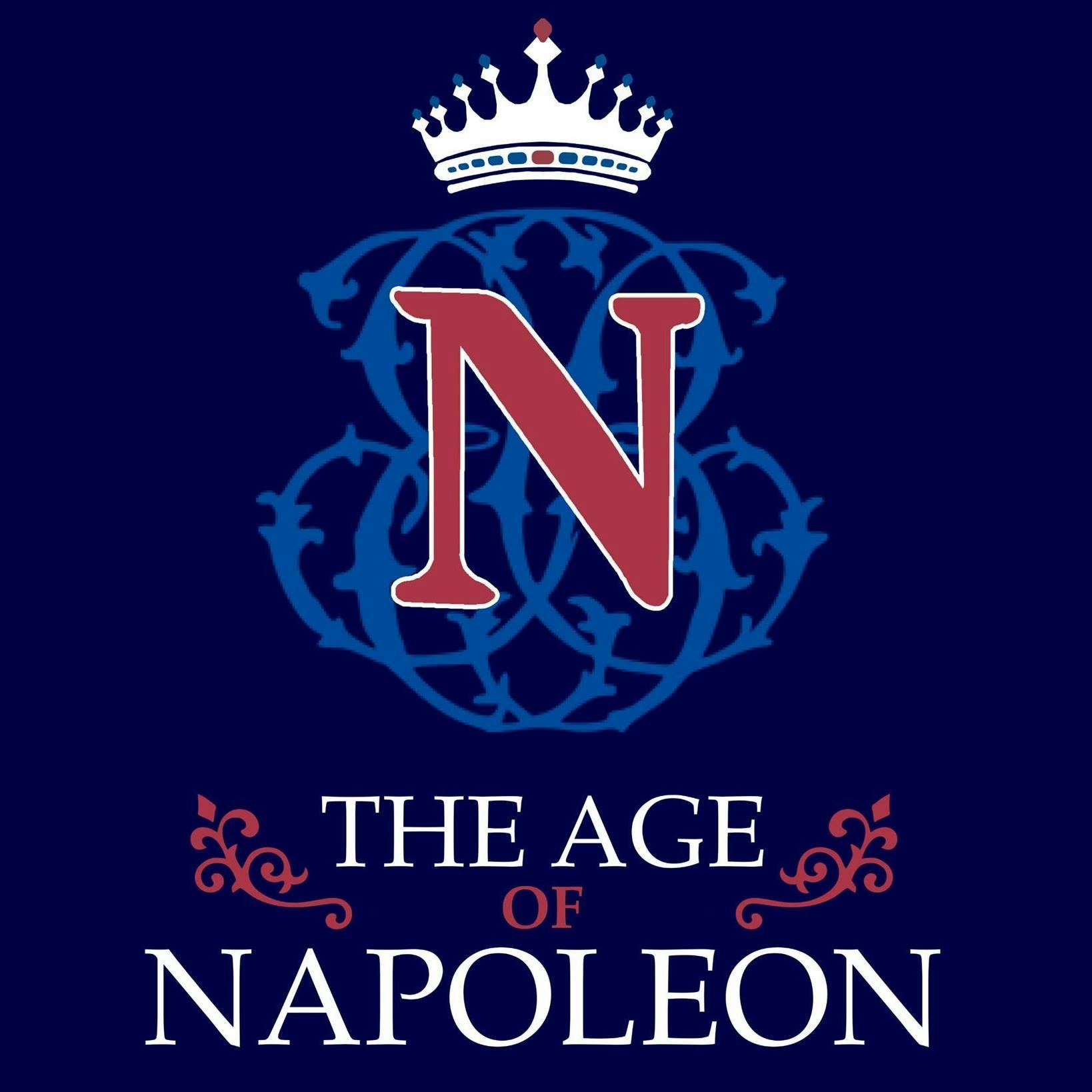
The Age of Napoleon Podcast
Everett Rummage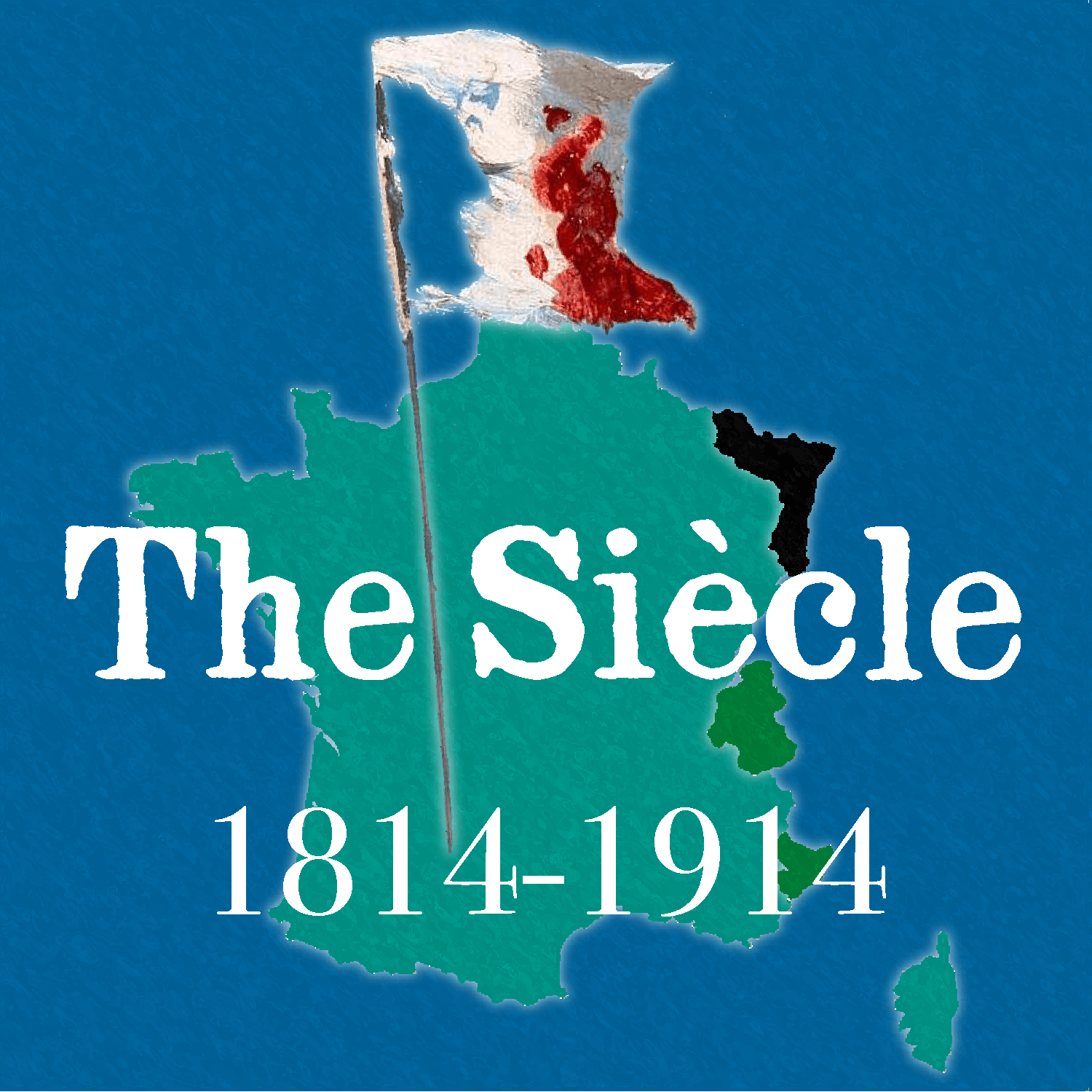
The Siècle History Podcast
Evergreen Podcasts
The Napoleonic Wars Podcast
Zack White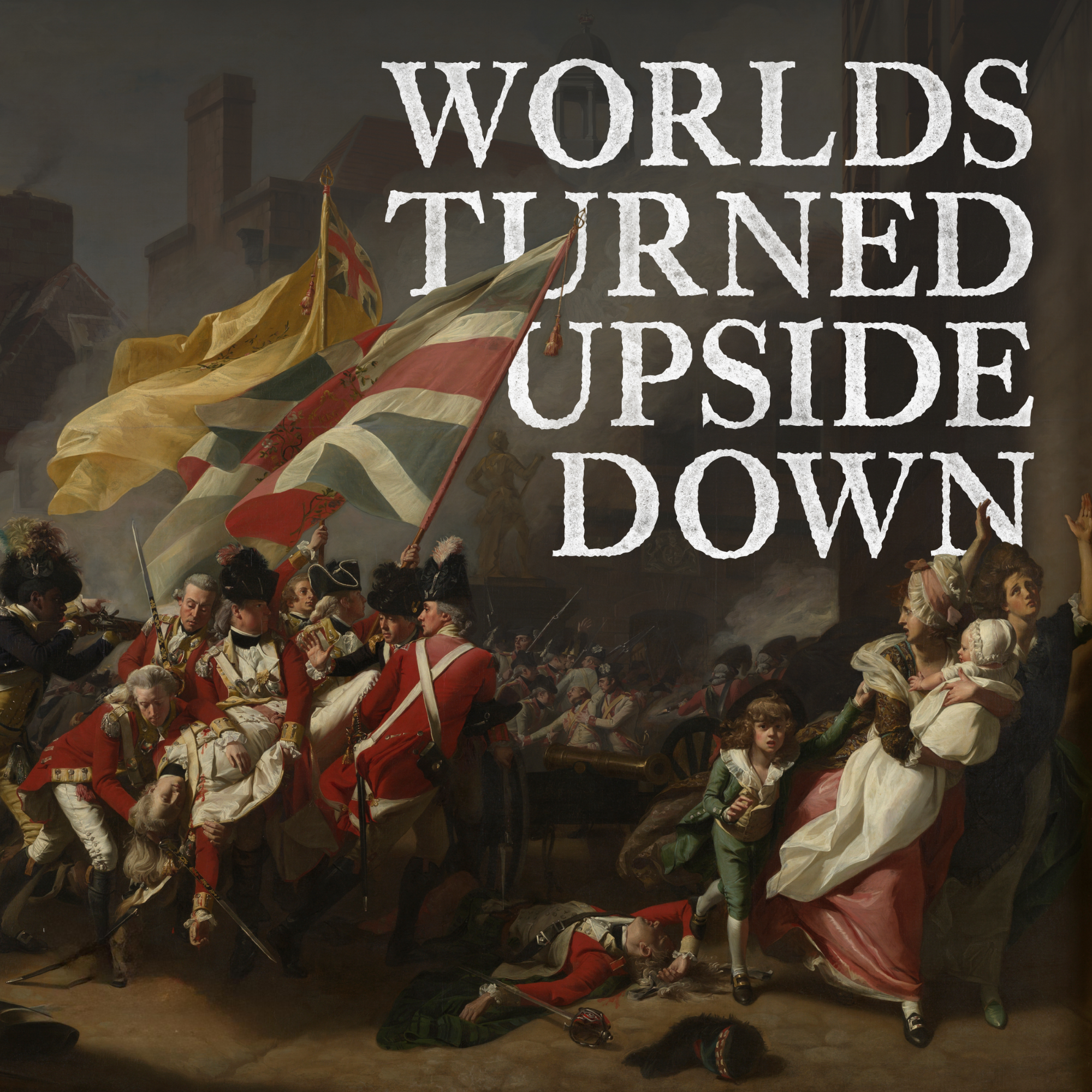
Worlds Turned Upside Down
Roy Rosenzweig Center for History and New Media
Empire-Builders
David Mainayar
Battles of the First World War Podcast
Mike Cunha
New York, Quebec, and The Water Route to the Center of the World
William Matthews
Deep into History
Deep into History
Battle Royale: French Monarchs
Ben Clarke and Eliza Sommers
A History of Japan
Justin Hebert
The French History Podcast
Evergreen Podcasts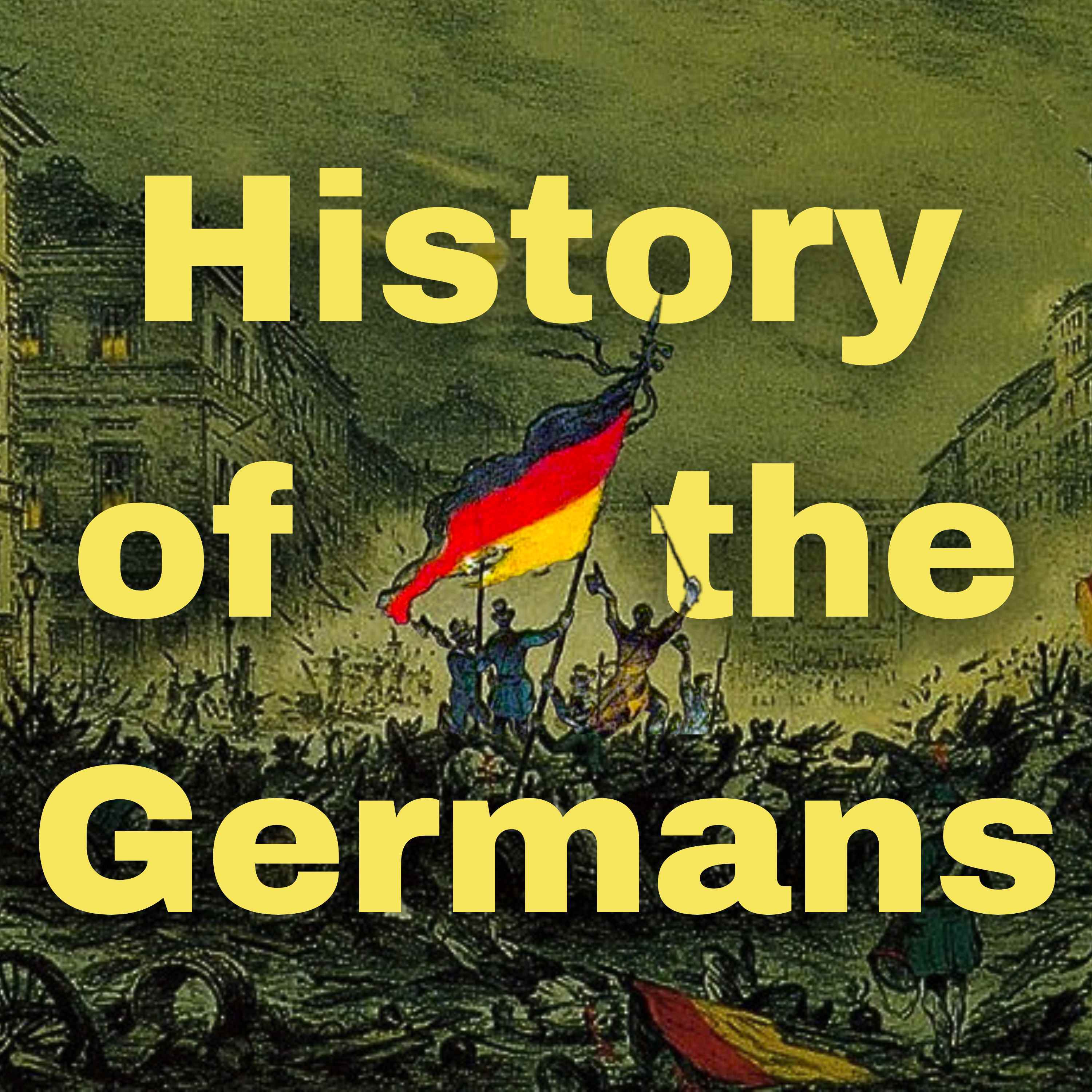
History of the Germans
Dirk Hoffmann-Becking
Half-Arsed History
Riley KnightFrench-Canadian Legacy Podcast
French-Canadian Legacy Podcast
The History of England
David Crowther
Canadian History Ehx
Craig Baird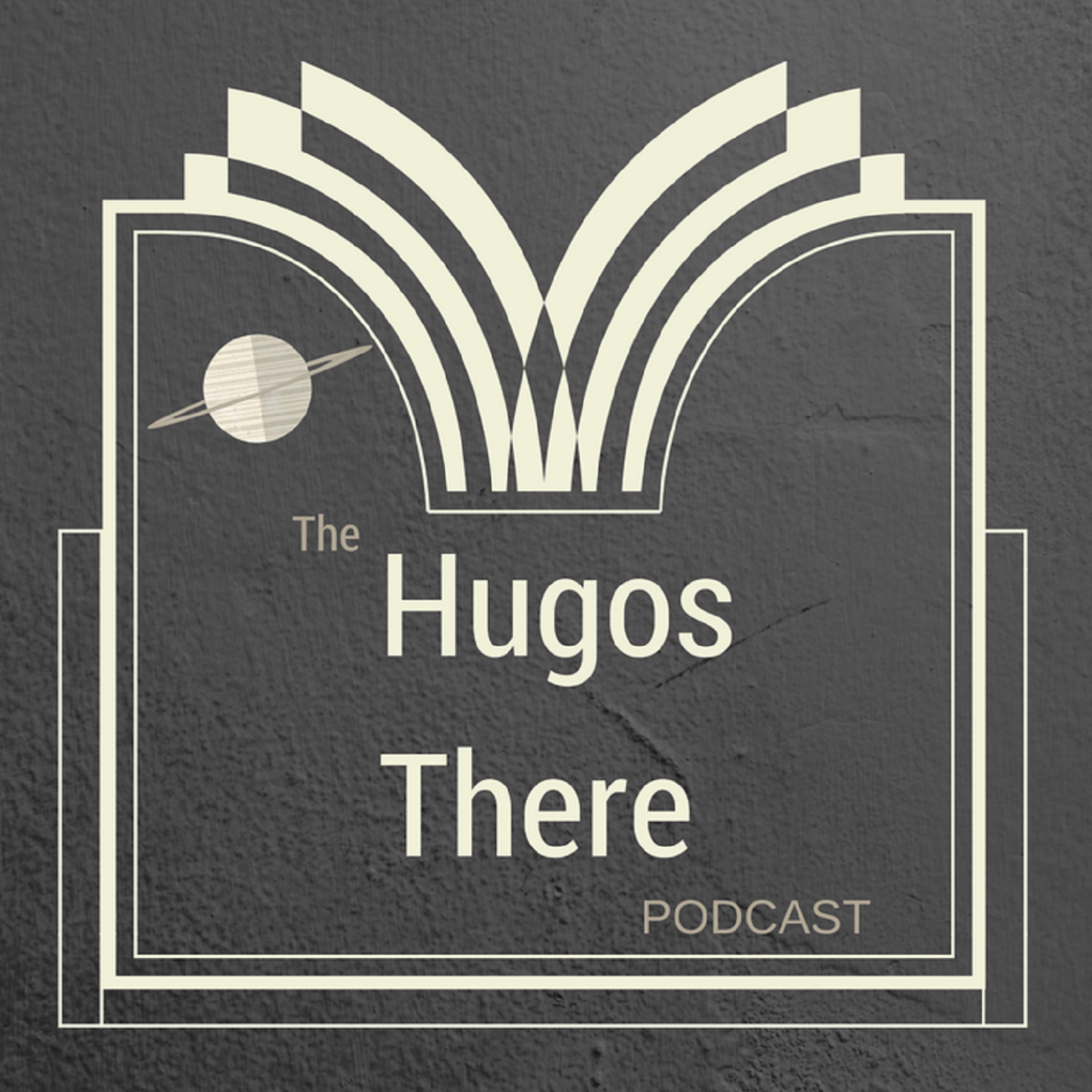
Hugos There Podcast
Hugos There Podcast
Hugo, Girl!
Hugo Girl

